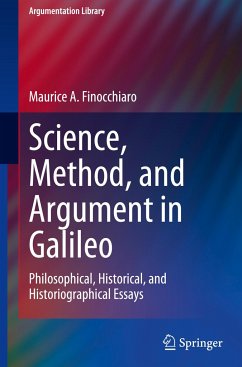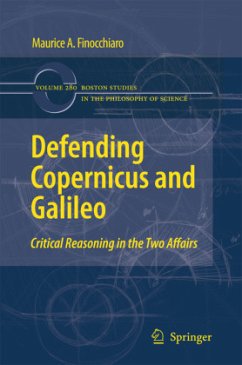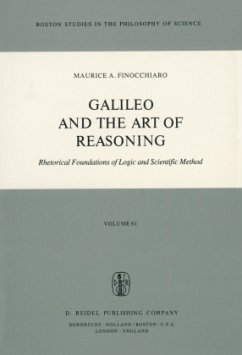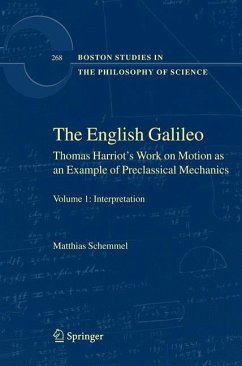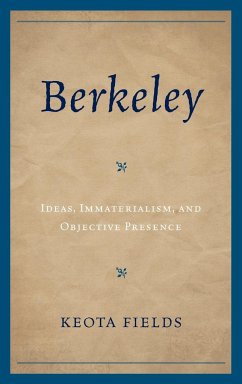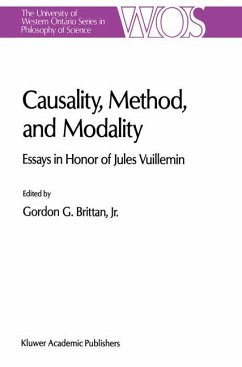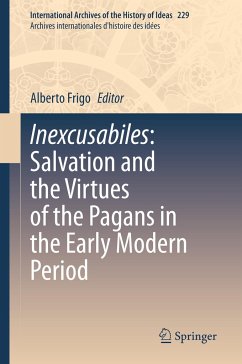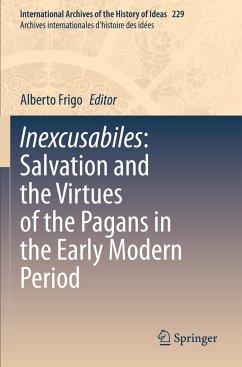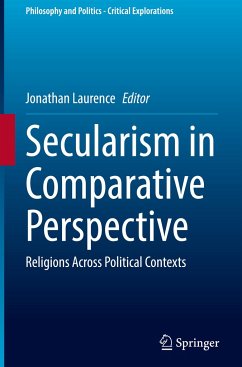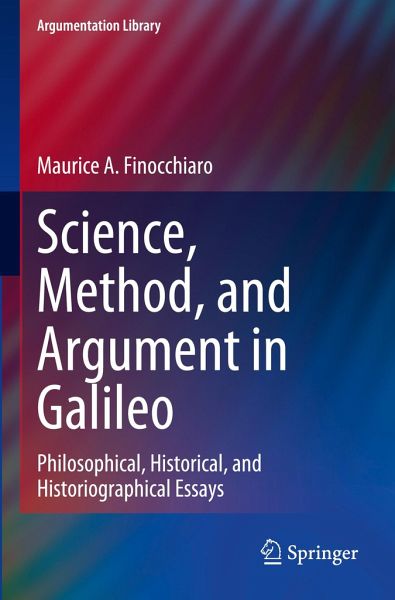
Science, Method, and Argument in Galileo
Philosophical, Historical, and Historiographical Essays
Versandkostenfrei!
Versandfertig in 6-10 Tagen
98,99 €
inkl. MwSt.
Weitere Ausgaben:

PAYBACK Punkte
49 °P sammeln!
This book collects a renowned scholar's essays from the past five decades and reflects two main concerns: an approach to logic that stresses argumentation, reasoning, and critical thinking and that is informal, empirical, naturalistic, practical, applied, concrete, and historical; and an interest in Galileo's life and thought-his scientific achievements, Inquisition trial, and methodological lessons in light of his iconic status as "father of modern science." These republished essays include many hard to find articles, out of print works, and chapters which are not available online. The collec...
This book collects a renowned scholar's essays from the past five decades and reflects two main concerns: an approach to logic that stresses argumentation, reasoning, and critical thinking and that is informal, empirical, naturalistic, practical, applied, concrete, and historical; and an interest in Galileo's life and thought-his scientific achievements, Inquisition trial, and methodological lessons in light of his iconic status as "father of modern science." These republished essays include many hard to find articles, out of print works, and chapters which are not available online. The collection provides an excellent resource of the author's lifelong dedication to the subject.
Thus, the book contains critical analyses of some key Galilean arguments about the laws of falling bodies and the Copernican hypothesis of the earth's motion. There is also a group of chapters in which Galileo's argumentation is compared and contrasted with that of other figures suchas Socrates, Karl Marx, Giordano Bruno, and his musicologist father Vincenzo Galilei. The chapters on Galileo's trial illustrate an approach to the science-vs-religion issue which Finocchiaro labels "para-clerical" and conceptualizes in terms of a judicious consideration of arguments for and against Galileo and the Church. Other essays examine argumentation about Galileo's life and thought by the major Galilean scholars of recent decades. The book will be of interest to scholars in philosophy, logic, philosophy of science, history of science, history of religion, philosophy of religion, argumentation, rhetoric, and communication studies.
Thus, the book contains critical analyses of some key Galilean arguments about the laws of falling bodies and the Copernican hypothesis of the earth's motion. There is also a group of chapters in which Galileo's argumentation is compared and contrasted with that of other figures suchas Socrates, Karl Marx, Giordano Bruno, and his musicologist father Vincenzo Galilei. The chapters on Galileo's trial illustrate an approach to the science-vs-religion issue which Finocchiaro labels "para-clerical" and conceptualizes in terms of a judicious consideration of arguments for and against Galileo and the Church. Other essays examine argumentation about Galileo's life and thought by the major Galilean scholars of recent decades. The book will be of interest to scholars in philosophy, logic, philosophy of science, history of science, history of religion, philosophy of religion, argumentation, rhetoric, and communication studies.



